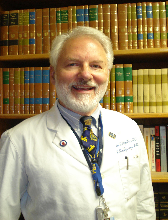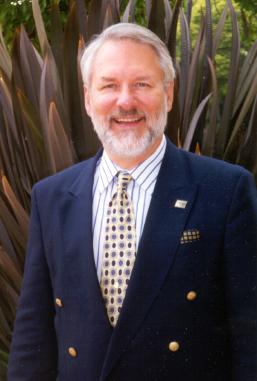 What is the maximum human lifespan? Why do we age? What are the causes and their mechanisms? Why do humans tend to live longer than most other mammals? Do we have a built-in “expiration date” – perhaps for the benefit of the species? Can the aging mechanism be delayed or entirely deactivated leading to eternal life?
What is the maximum human lifespan? Why do we age? What are the causes and their mechanisms? Why do humans tend to live longer than most other mammals? Do we have a built-in “expiration date” – perhaps for the benefit of the species? Can the aging mechanism be delayed or entirely deactivated leading to eternal life?
These and the related questions were what fascinated Dr. L. Stephen Coles, who in 1990 founded the Los Angeles Gerontology Research Group, a global network of researchers and parties intrigued by the boundaries of the human life span. Among the group’s primary work is the cataloguing, tracking and studying of so-called “supercentenarians” – people who live past the age of 110. (As of this writing, there are only 76 such humans verified to be living on this planet. 74 of them are women).
I became intrigued with this subject after reading about Dr. Coles’ work in this Los Angeles Times article in 2004. So I got in touch with him and found a fascinating researcher, inspiring person and mentor.

Subsequently, I wrote a long-form magazine article on the subject, which was published in a German science magazine. Dr. Coles was the most important and primary source for it. During the many hours we spent talking, I learned to appreciate not only his professional knowledge, but also his humor, gregarious personality and boundless enthusiasm for the hope that science would, very soon, make it possible for humans to live exceedingly longer than today.
Steve was a passionate proponent of evidence-based science and rational thought, for the prosperity of all mankind. Sadly, he didn’t get to benefit from the future scientific breakthroughs he was hoping for. I was shocked when shortly after Christmas of 2012, there came an e-mail announcing this Steve’s holidays had been rather miserable.
“I am sad to report that on Christmas Eve (two days ago), I received the
horrible diagnosis of ‘adenocarcinoma of the head of the pancreas’,” the message read. “BTW, this is the same form of cancer that Steve Jobs CEO of Apple Computer had before he passed away when money was no object. Although I knew that something was wrong with my body for the last three weeks (acute onset of symptoms with the occult tumor possibly growing subclinically for two years or more with no manifestation of its presence until it grew large enough to screw up my internal plumbing by its sheer volume [about the size of a plum])”.
Knowing that pancreatic cancer has one of the lowest survival rates of all carcinomas, the first thing that came to my mind was obvious. It was really crushing.
Of course Steve was perfectly aware of his low odds. He went on writing, “Even in the best of all possible worlds, the mortality statistics after five years of chemo therapy are not great (around 50 percent). Of course, in the event of metastases, one’s life post chemotherapy/radiotherapy are significantly shortened proportionally.”
And unfortunately, there was metastasis in the liver.
Various attempts were made – first surgery (the “Whipple Procedure“), then various chemotherapy, as well as some experimental procedures involving the growth of tumor-specific cells in the laboratory.
While the procedures prolonged Steve’s life to the limits of the statistical prognosis range, they failed in in the end.
When this final message on Oct. 9, 2014, we all knew this was it. “Update on Health Status,” it said. “In order to be eligible for more services, last week I was placed on hospice care at home. Now that I have been taken off taxotere, some measures of health have improved. However, my eligibility for the ECLIPSE clinical trial has been placed on hold pending a decrease in frailty.”
Steve passed away on December 3, 2014, a few weeks short of living for two years after his diagnosis.
But the story does not end here. A few days before his death, Steve must have gone on his life’s final journey: From Los Angeles to Scottsdale, Arizona. Located there is the Alcor Life Extension Foundation – coincidentally also an organization which intrigues me, and about which I have also reported in detail.
Alcor is the leader in “cryonics”. This is an experimental technology which seeks to preserve human bodies through a procedure resulting in suspension of human tissues in liquid nitrogen, at extremely low temperatures, in perpetuity. The hope is that one day in the future, biotechnology will exist to revive these cryogenically “suspended” human bodies, restore them to life by the use of sophisticated nanotechnology, and also deal with whatever the cause of death was.
Depending on the preferences of the customer, either the entire body, the head or just the brain may be frozen (on the theory that once biotechnology has progressed far enough, it should also be possible to either create a new body, or transfer the brain’s content into a computer system).
I am not at all surprised that Steve was also intrigued by the idea and made arrangements to implement this option as a last resort.
And so, Steve’s brain will come to rest in a dewar of liquid nitrogen. Perhaps, one day, he might live again. And he has reportedly made a reservation to attend his colleague Johnny Adams’ 100th birthday party. In the year of 2049.
I will miss him.
Obituary in the Los Angeles Times

